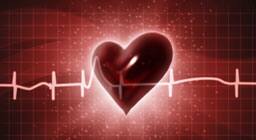London: A new study has revealed the hypothetical mechanism behind heart attack caused by stress, emotional shock, or overexertion.
Hormones released during stressful situations appear to cause bacterial biofilms on arterial walls to disperse, allowing plaque deposits to rupture into the bloodstream that leads to heart attack.
David Davies of Binghamton University said that their hypothesis fitted with the observation that heart attack and stroke often occur following an event where elevated levels of catecholamine hormones are released into the blood and tissues, such as occurs during sudden emotional shock, stress or over-exertion.
He further explained that at least one species of bacteria 'Pseudomonas aeruginosa' commonly associated with carotid arteries in their studies, was able to undergo a biofilm dispersion response when exposed to norepinephrine, a hormone responsible for the fight-or-flight response in humans.
This research suggests that bacteria should be considered to be part of the overall pathology of atherosclerosis and management of bacteria within an arterial plaque lesion may be as important as managing cholesterol.
The research is published in mBio.
















